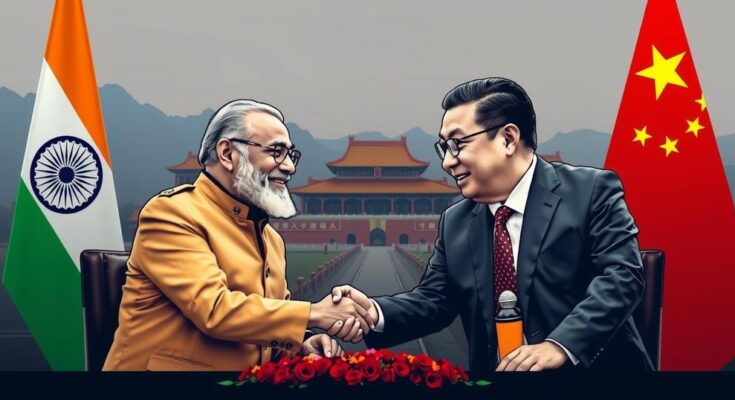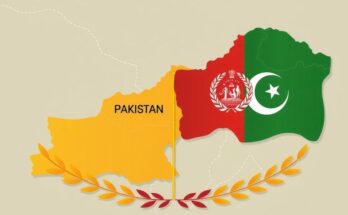India and China have taken a significant step to improve ties by discussing the resumption of direct flights and the Kailash Mansarovar pilgrimage during a meeting between their foreign ministers on the sidelines of the G20 Summit. This meeting marks the first high-level engagement since military disengagement in Ladakh and reflects a mutual recognition of the importance of stabilizing relations while managing differences constructively.
Recent discussions between India and China, held on the sidelines of the G20 Summit in Brazil, indicate significant progress in their bilateral relations. India’s External Affairs Minister, S. Jaishankar, met with Chinese Foreign Minister Wang Yi, where they addressed the resumption of direct flights and the Kailash Mansarovar pilgrimage, which had been suspended due to the COVID-19 pandemic. Both ministers recognized that the completion of the disengagement process in Ladakh has facilitated a peaceful atmosphere that fosters further dialogue. This meeting marked the first high-level interaction after military tensions heightened in 2020, with serious confrontations leading to casualties on both sides. The discussion of direct flights and the pilgrimage to Mount Kailash highlights a broader commitment to restoring normalcy. The Ministry of External Affairs (MEA) noted that they also discussed essential topics, including data sharing on trans-border rivers and media exchanges, which are pivotal in building mutual trust. Furthermore, Prime Minister Narendra Modi’s earlier engagements with President Xi Jinping underline India and China’s willingness to work through their differences while seeking collaborative pathways in multilateral platforms such as BRICS and the Shanghai Cooperation Organization. Jaishankar emphasized a principled foreign policy based on mutual respect, asserting that India does not align its international relations through the lens of other nations’ influences. The Chinese Foreign Ministry concurs that the current moment represents a “new starting point” for India-China relations, stressing the importance of fulfilling leaders’ agreements to stabilize ties and manage differences constructively. Both parties are tasked with regaining stable development in their bilateral relationship while navigating challenges in good faith and sincerity.
The ongoing India-China relationship has been historically contentious, particularly after border clashes began in May 2020, resulting from territorial disputes in the Ladakh region. The clashes culminated in significant casualties, prompting both nations to engage in military talks and gradually work toward a strategic disengagement from the tense border situation. The discussions between S. Jaishankar and Wang Yi reflect a broader reconciliation effort following these historical tensions, aiming to normalize diplomatic and operational engagements that had been severely hampered during the COVID-19 pandemic. Resuming essential exchanges, such as flights and religious pilgrimages, signifies a potential thaw in relations that could promote regional stability and cooperation going forward.
The recent dialogue between India and China represents a constructive step towards improving bilateral relations following a challenging period marked by military standoffs and diplomatic strain. Initiatives to resume direct flights and the Kailash Mansarovar pilgrimage signify a commitment to restoring vital links. Both nations appear poised to navigate their differences while aiming to stabilize and develop their relationship further, responding to the evolving geopolitical landscape.
Original Source: www.ndtv.com




